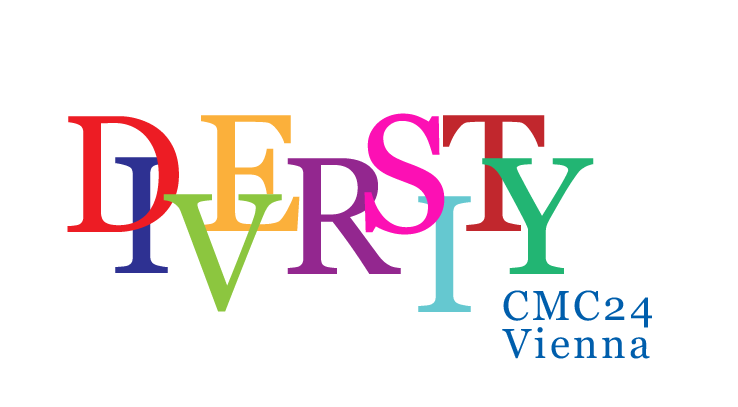Diversity in Corporate and Marketing Communications
The Journal of Marketing Communications
Guest editors
Prof. Sabine Einwiller (sabine.einwiller@univie.ac.at)
Dr. Ingrid Wahl (ingrid.wahl@univie.ac.at)
Submission deadline: extended to June 10, 2024 - Submissions closed
To submit a paper for the special issue, indicate during the submission process that you are submitting a paper for a special issue and then select "Diversity in Corporate and Marketing Communications"
Call for Papers
Valuing diversity in corporate and marketing communications is crucial in today's globalized and interconnected world. Companies promoting diversity and inclusion in their communication with stakeholders not only demonstrate a commitment to social responsibility; they also benefit in terms of brand reputation, customer loyalty, and employee engagement. In marketing communications, diverse representation and inclusive messaging can help to build stronger connections with a wider range of customers, which may ultimately lead to increased sales and market share. By also acknowledging and valuing diversity in their corporate communications with employees, companies can foster a positive and inclusive work culture in which each individual is respected, thereby creating a sense of belonging. Overall, incorporating diversity into corporate and marketing communications is not only a responsible approach but also a smart business strategy.
As more companies integrate diversity and inclusion in their business and communication strategies, we see an increasing amount of research on this topic, shedding light on the most effective approaches and best practices for promoting diversity and inclusion in the corporate world. Researchers are exploring various aspects of diversity and inclusion, such as the representation of diverse groups in advertising and marketing campaigns, the impact of inclusive messaging on customer perceptions and behaviour, and the effects of diversity and inclusion on employee engagement and organizational performance. While there is still much to learn about diversity and inclusion in the corporate and marketing environment, research already underscores the importance of corporate and marketing communications when it comes to diversity and inclusion as key aspects of business success and sustainability.
For the special issue we invite submissions on research discussing general aspects of communication related to diversity and inclusion, as well as on research focusing upon specific dimensions of diversity which at their core include gender, age, race and ethnicity, sexual orientation, physical and mental abilities, religion and spirituality, and socioeconomic status. Questions like the following may be addressed:
- How does the representation of diverse groups in corporate and marketing campaigns impact stakeholder perceptions and behaviour?
- How can companies authentically and effectively communicate their commitment to diversity and inclusion to important stakeholders, such as customers, employees, and investors?
- What are barriers and criticisms to diversity and inclusion and how can they be addressed?
- What role do unconscious biases play in shaping perceptions of diversity and inclusion in the workplace and in the marketplace?
- What role does communication play to foster an inclusive work environment?
- How are corporate and marketing communications on diversity and inclusion managed within companies?
- What are good and bad case examples of communication on diversity and inclusion and what can we learn from them?
Timeline Special Issue:
- Submission closes: June 10, 2024
- Issue will be published: 2025
Submission Guidelines for Special Issue
- Manuscripts should not exceed 6,000 words (including abstract)
- Manuscripts should be structured as follows: title page; abstract; keywords; main text introduction, materials and methods, results, discussion; acknowledgments; declaration of interest statement; references; appendices (as appropriate); table(s) with caption(s) (on individual pages); figures; figure captions (as a list)
- Please use the Taylor & Francis Standard Reference Style: Chicago author date (styles are available for Endnote and Zotero). In the reference style manual and on the journal’s website more detailed instructions can be found.
- Manuscripts should be submitted using the journal’s submission portal
Manuscripts found suitable by the guest editors will receive two double-blind reviews. The special issue will be published in the Journal of Marketing Communications in 2025.
Please direct all questions to the guest editors:
- Professor Sabine Einwiller, University of Vienna, (sabine.einwiller@univie.ac.at)
- Dr. Ingrid Wahl, University of Vienna, (ingrid.wahl@univie.ac.at)
